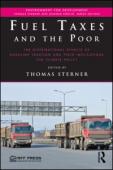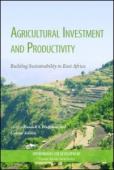
This book challenges the conventional wisdom that gasoline taxation, an important and much-debated instrument of climate policy, has a disproportionately detrimental effect on poor people. Increased fuel taxes carry the potential to mitigate carbon emissions, reduce congestion, and improve local urban environment. As such, higher gasoline taxes could prove to be a fundamental part of any climate action plan. However, they have been resisted by powerful lobbies that have persuaded people that increased fuel taxation would be regressive. Reporting on examples of over two dozen countries, this book sets out to empirically investigate this claim. The authors conclude that while there may be some slight regressivity in some high-income countries, as a general rule, fuel taxation is a progressive policy particularly in low income countries. Rich countries can correct for regressivity by cutting back on other taxes that adversely affect poor people, or by spending more money on services for the poor. Meanwhile, in low-income countries, poor people spend a very small share of their money on fuel for transport.

This book provides a deep and systematic look at the opportunities for and constraints to investments in sustainable agriculture in East Africa, offering important insights into what works and how to analyse agricultural investments in one of the poorest regions of the world.
The book critically examines the reasons behind East Africa's stagnant agricultural productivity over the past forty-five years, using the primary lens of investments in fertilisers, seeds, and sustainable land management technologies. These investment have a tremendous impact on production volume, ultimately affecting the income of millions of families throughout the region.
This book provides case studies on Kenya and Ethiopia.
This report is the first comprehensive study on the emergence of a “green economy” and its impact on the world of work. It includes data that shows a changing pattern of employment in which green jobs are being generated in many sectors and economies around the world as a result of measures to tackle climate change and to reduce emissions of greenhouse gases. This has also led to changing patterns of investment flows into areas such as renewable energy and energy efficiency at the household and industrial level. Within current policy frameworks, only a fraction of the potential benefits for jobs and development is forthcoming.
